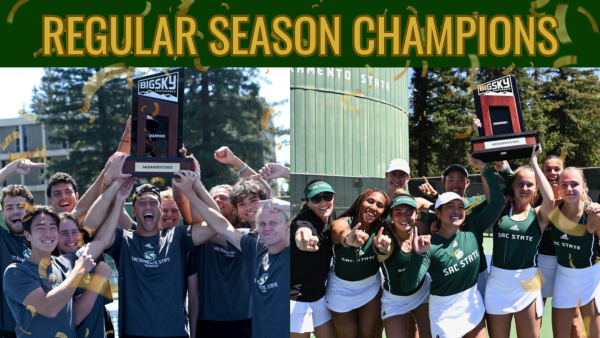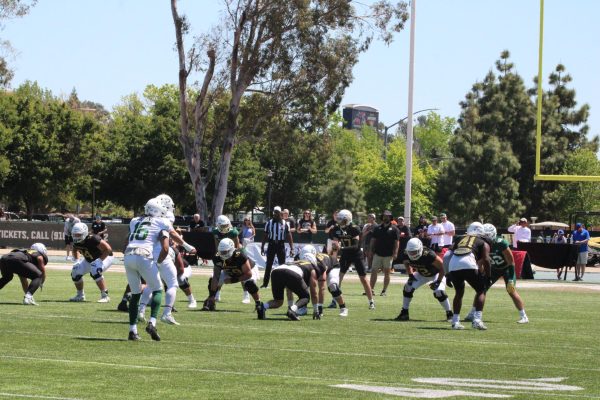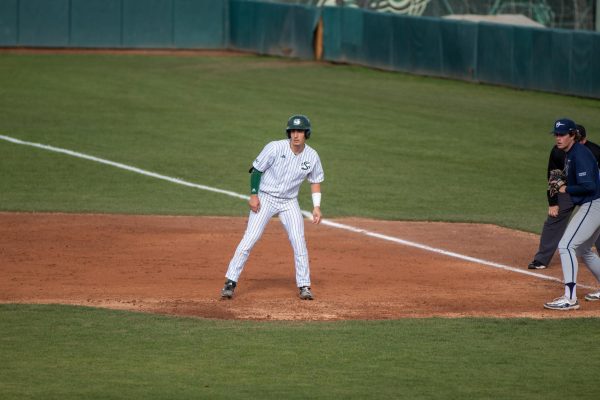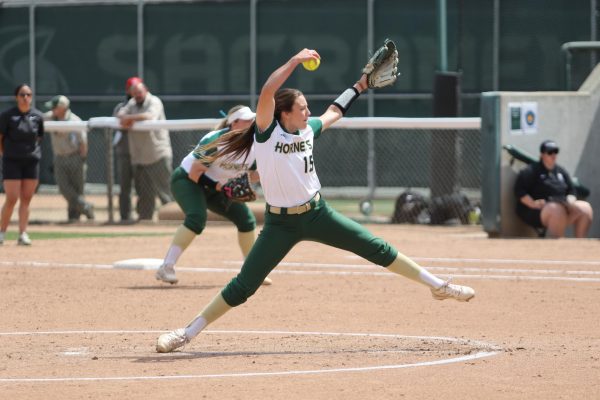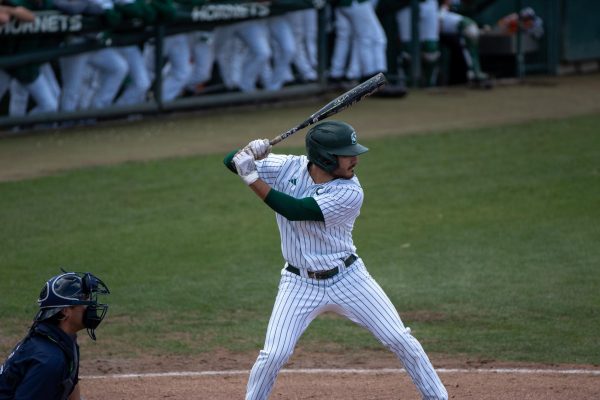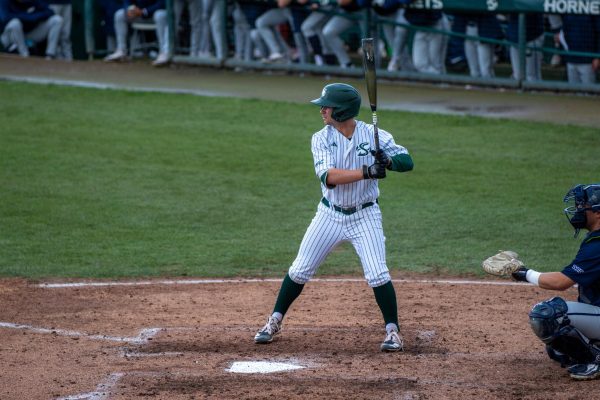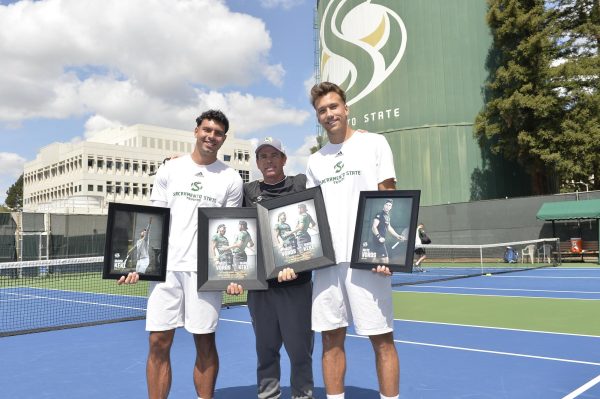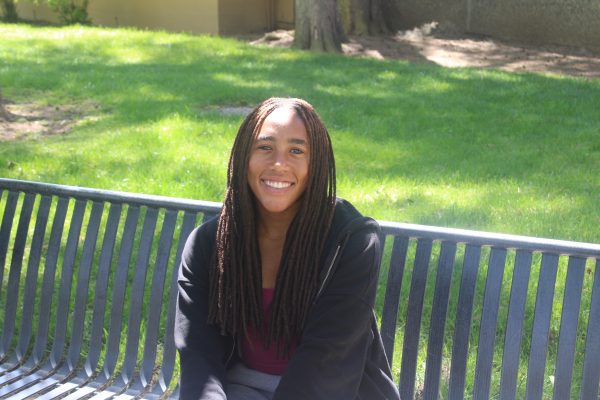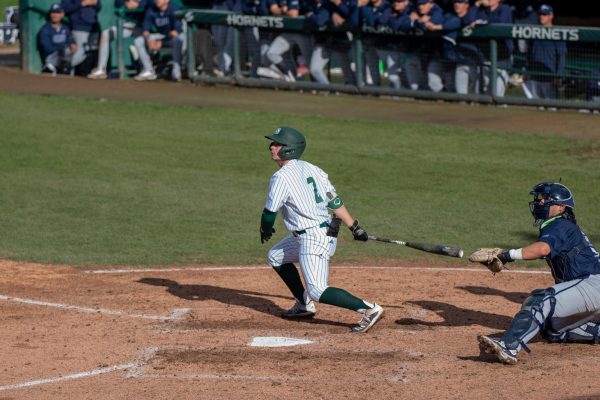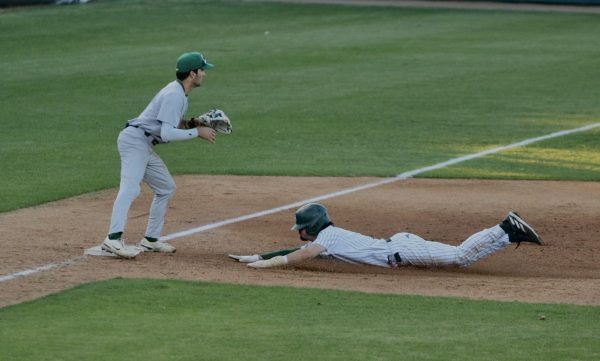Cespedes signs with Oakland, has big shoes to fill as Cuban-born big-leaguer
February 14, 2012
In an unexpected display of affluence Monday, the Oakland Athletics signed Cuban star Yoenis Cespedes to a four-year, $36 million deal.
The contract appears to be a departure from General Manager Billy Beane’s strategy of as recently as December, when he sold his fortune in young pitching talent for a handful of prospects.
The A’s hope Cespedes, who in 2010-11 set the Cuban League single-season home run record with 33, will be their everyday center fielder for years to come. And for a guy who hit .458 with three triples and two homers when he represented Cuba in the 2009 World Baseball Classic, he should have the raw skills to fill that role.
The deal doesn’t make much sense for the A’s, though, since pitching prospects A.J. Cole and Brad Peacock are both still developing. By the time they hit their stride, either the unproven Cespedes will have flopped like so many imports before him, or he’ll excel and hit the open market in four years worth more than the A’s will be able to pay.
Cespedes certainly has the talent to succeed at the big-league level, as displayed in this now-famous promotional video featuring some of his accomplishments as well as some radical easy-listening tunes.
If he does pan out, Cespedes will join a long list of decorated major-leaguers who hail from the island nation of Cuba. Here are the top four Cuban-born players of all time.
Jose Canseco
Along with A’s teammate Mark McGwire, Cuban-born Jose Canseco terrorized the American League in the late 1980s.
Canseco won AL Rookie of the Year honors in 1986 with 33 homers and 117 RBIs. He became the first player in Major League History to hit 40 long balls and steal 40 bases in the same season, and amassed two World Series rings and six All-Star appearances during his career.
Of course, today’s fan is more likely to associate him with the rampant steroid use which plagued the game during this time. His 2005 book, “Juiced,” in which he spilled his guts about his performance-enhancing drug use, also named former A’s teammates McGwire and Jason Giambi as guilty parties.
Photo courtesy of Flickr user MPR529, Creative Commons.
Tony Oliva
Oliva played all 14 years of his career with the Minnesota Twins, and was one of the premier offensive producers of the mid- to late-1960s.
Oliva joined up with the Twins’ farm system in the late ‘50s, and was playing in America when the Cuban Revolution occurred and returning home became difficult.
After that point, Oliva quickly became a staple of the Minnesota lineup. He established himself by earning AL Rookie of the Year in 1964, when he led the league in hits, runs, batting average, doubles and total bases. He repeated as batting average champion twice more, and led the AL in hits five total times.
Beginning in the early ‘70s, Oliva was often sidelined with injuries, only appearing in 10 games during the ’72 season. His number six was retired by the Twins in 1991.
Photo courtesy of Wikimedia Commons.
Rafael Palmeiro
Rafael Palmeiro is an example of a potential Hall of Fame-caliber player whose name has been forever sullied by association to performance-enhancing drugs.
Palmeiro got his first taste of stardom in 1990, when he led the league in hits as a member of the Texas Rangers. From there he would become one of the most prolific power hitters of his generation.
Palmeiro hit no fewer than 37 home runs between 1995 and 2003, a power streak which helped him climb the ranks of all-time home run leaders. His 569 round-trippers for the Rangers, Orioles and Cubs are good enough for 12th on the career list.
The first baseman was implicated in Canseco’s aforementioned book, and was suspended for 10 games in August 2005 for testing positive for steroids. Palmeiro maintains his innocence, pointing out he never failed another test. Like other big hitters of the ‘90s, though, he will likely never escape the shadow of that controversy.
Photo by Elizabeth Malby, courtesy of McClatchy-Tribune.
Tony Perez
Perhaps the greatest Cuban-born player ever in the major leagues, Tony Perez earned his spot in the Hall of Fame at least in part for his heroics during the World Series.
As part of the famous “Big Red Machine” in Cincinnati in the mid-‘70s, Perez led the offense, collecting over 100 RBIs six times with the Reds. When the Reds won their first of two consecutive titles in 1975, Perez had three homers and seven RBIs in the World Series against Boston.
His best season came in 1970 when he notched 40 home runs, knocked in 129 and put together a .401 on-base percentage. His 1,652 career RBIs puts him 28th all-time.
Photo courtesy of Wikimedia Commons.
Alex Grotewohl can be reached at [email protected].



































































































































